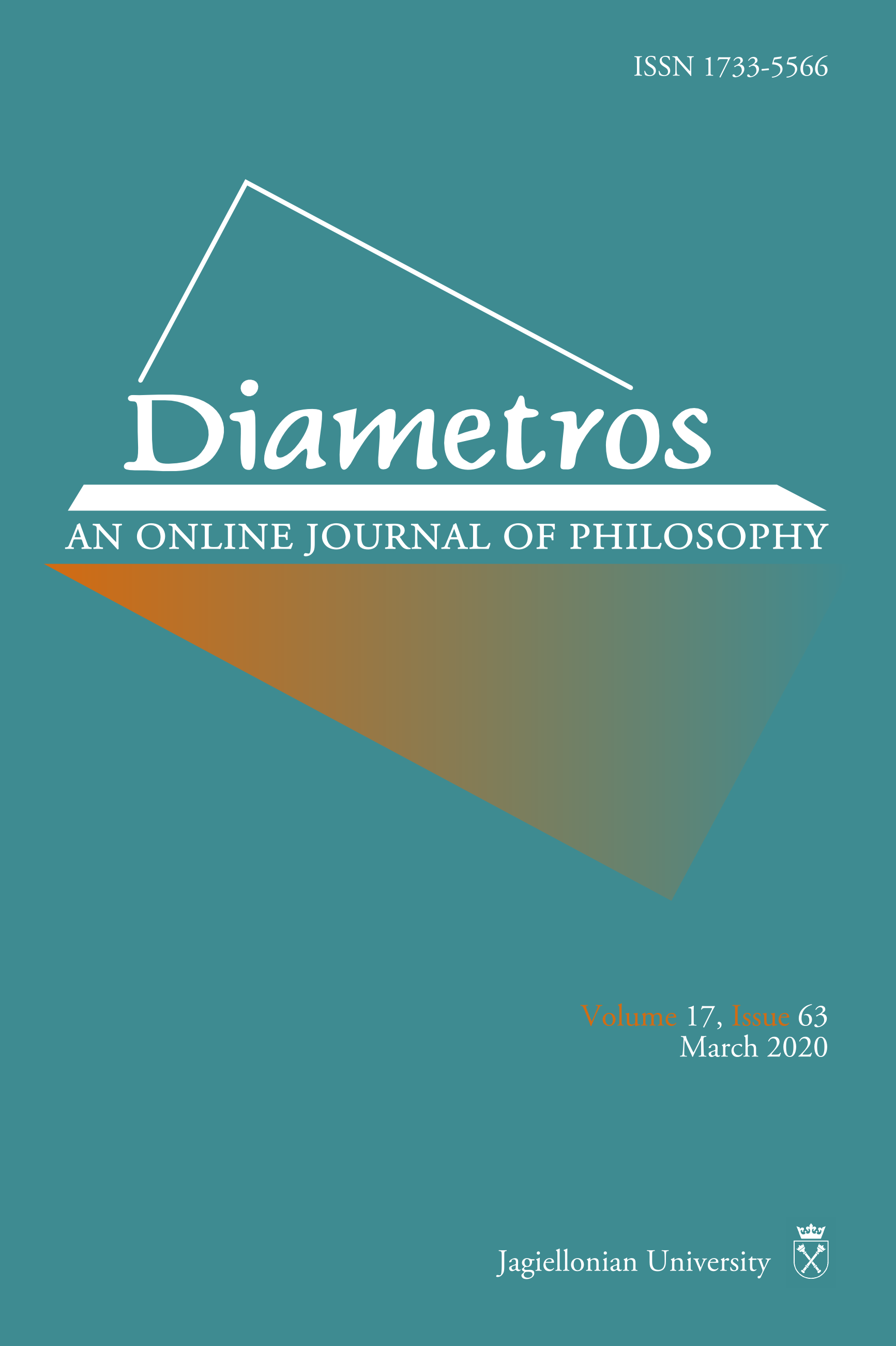Konstruktywistyczny szacunek do nauki. O podejściu Richarda Rorty’ego i Bruno Latoura
Main Article Content
Abstrakt
Celem artykułu jest odpowiedź na pytanie: jak można być konstruktywistą, a jednocześnie traktować naukę jako jedno z najważniejszych osiągnięć współczesnych społeczeństw? Jako że konstruktywizm jest bogatym nurtem, mającym wiele odmian, autor skupia się tylko na jego dwóch przedstawicielach – Richardzie Rortym i Bruno Latourze. Stara się dowieść, że z połączenia wybranych aspektów ich stanowisk można zbudować spójną odpowiedź na zadane pytanie. Choć Rorty i Latour odrzucają realistyczną wizję nauki, to jednocześnie przekonują, że nauka jest skutecznym sposobem na radzenie sobie ze światem, czy też – by użyć terminu Latoura – z czynnikami pozaludzkimi. Tak więc to pragmatyczna kategoria „radzenia sobie” – a nie filozoficznie rozumiane pojęcia reprezentacji bądź korespondencji – staje się uzasadneniem renomy nauki. Obaj myśliciele podkreślają, że skuteczność we wchodzeniu w interakcje z czynnikami pozaludzkimi jest wynikiem swoistej kultury współpracy i wzajemnej kontroli, wpisanej w działalność naukową.
Article Details
Numer
Dział
Teksty zaproponowane do naszego czasopisma nie powinny być nigdzie publikowane przed ukazaniem się w „Diametros”. Wraz z przesłaniem swojego utworu redakcji autor akceptuje, że w momencie zakwalifikowania tekstu do publikacji czasopismo „Diametros” będzie stosowało licencję the Attribution 4.0 International (CC BY 4.0). Na podstawie tej licencji autorzy zgadzają się, że ich prace mogą być zgodnie z prawem ponownie wykorzystywane do jakichkolwiek celów bez konieczności uzyskania uprzedniej zgody ze strony autora lub wydawcy. Każdy może prace te czytać, pobierać, kopiować, drukować, rozpowszechniać oraz przetwarzać, pod warunkiem poprawnego oznaczenia autorstwa oraz oryginalnego miejsca publikacji. Autorzy zachowują prawa autorskie do swoich utworów bez żadnych innych ograniczeń. Pełna informacja na temat licencji CC BY: https://creativecommons.org/licenses/by/4.0/legalcode.
Jak cytować
Bibliografia
Abriszewski K. (2008), Poznanie, zbiorowość, polityka. Analiza teorii aktora-sieci Bruno Latoura, Universitas, Kraków.
Afeltowicz Ł. (2012), Modele, artefakty, kolektywy. Praktyka badawcza w perspektywie współczesnych studiów nad nauką, Wydawnictwo Naukowe UMK, Toruń.
Bińczyk E. (2015), Postkonstruktywizm w badaniach nad nauką, [w:] Horyzonty konstruktywizmu. Inspiracje, perspektywy, przyszłość, E. Bińczyk, A. Derra, J. Grygieńć (red.), Wydawnictwo Naukowe UMK, Toruń: 209–232.
Brandom R.B. (red.) (2008), Rorty and his Critics, Blackwell Publishing, Oxford.
Buczyńska-Garewicz H. (2008), Prawda i złudzenie. Eseje o myśleniu, Universitas, Kraków.
Callon M. (1999), Whose Imposture? Physicists at War with the Third Person, „Social Studies of Science” 2 (29): 261–286. DOI: https://doi.org/10.1177/030631299029002011
Hacking I. (1999), The Social Construction of What?, Harvard University Press, Cambridge and London: 11–56.
Hacking I. (2015), Konstrukcja społeczna “czego”?, tłum. E. Bińczyk, [w:] Horyzonty konstruktywizmu. Inspiracje, perspektywy, przyszłość, E. Bińczyk, A. Derra, J. Grygieńć (red.), Wydawnictwo Naukowe UMK, Toruń.
Harman G. (2016), Książę sieci. Bruno Latour i metafizyka, tłum. G. Czemiel, M. Rychter, Fundacja Augusta Hrabiego Cieszkowskiego, Warszawa.
Kalaga W. (1997), Tekst – wirtualność – interpretacja: w sprawie przybijania gwoździ, „Teksty Drugie” 6 (48): 83–92.
Latour B. (2010), An Attempt at a Compositionist Manifesto, [w:] „New Literary History” 41 (3): 471–490.
Latour B. (2013a), Nadzieja Pandory. Eseje o rzeczywistości w studiach nad nauką, tłum. K. Abriszewski et al., Wydawnictwo Naukowe UMK, Toruń.
Latour B. (2013b), An Inquiry into Modes of Existence. An Anthropology of the Moderns, Harvard University Press, Cambridge, Massachusetts, London, England.
Markiewka T.S. (2014), Rorty na temat prawdy i świata. Polemika z Hanną Buczyńską-Garewicz, „Diametros” 41: 152–167.
Nowak A.W., Abriszewski K., Wróblewski M. (2016), Czyje lęki? Czyja nauka? Struktury wiedzy wobec kontrowersji naukowo-społecznych, Wydawnictwo Naukowe UAM, Poznań.
Putnam H. (1975), Mathematics, Matter and Method, Cambridge University Press, Cambridge.
Rorty R. (1998a), Konsekwencje pragmatyzmu. Eseje z lat 1972–1980, tłum. Cz. Karkowski, IFiS PAN, Warszawa.
Rorty R. (1998b), Truth and Progress, Cambridge University Press, Cambridge.
Rorty R. (1999), Obiektywność, relatywizm i prawda, tłum. J. Margański, Aletheia, Warszawa.
Rorty R. (2009a), Filozofia jako polityka kulturalna, tłum. B. Baran, Spółdzielnia Wydawnicza Czytelnik, Warszawa.
Rorty R. (2009b), Przygodność, ironia i solidarność, tłum. W. J. Popowski, Wydawnictwo W.A.B, Warszawa.
Rorty R. (2013), Filozofii a nadzieja na lepsze społeczeństwo, tłum. J. Grygieńc, S. Tokariew, Wydawnictwo Naukowe UMK, Toruń.
Searle J.R. (1995), The Construction of Social Reality, Free Press, New York.
Shapin S. (2001), How to be Antiscientific, [w:] The One Culture? A Conversation About Science, J.A. Labinger, H. Collins, The University of Chicago Press, Chicago and London.
Sokal A. (1996), A Physicist Experiments With Cultural Studies, „Lingua Franca” May/June, URL = http://linguafranca.mirror.theinfo.org/9605/sokal.html [dostęp 26.02.2018].
Sokal A., Bricmont J. (1998), Modne bzdury. O nadużywaniu pojęć z zakresu nauk ścisłych przez postmodernistycznych intelektualistów, tłum. P. Amsterdamski, Prószyński i S-ka, Warszawa.
Szahaj A. (2014), O interpretacji, Universitas, Kraków.
Szubka T. (2012), Neopragmatyzm, Wydawnictwo Naukowe UMK, Toruń.
Tuchańska B. (2006), O Sokalu z Bricmontem, Latourze i o tym, co z tego (nie) wynika, „Nauka” 1: 93–111.
